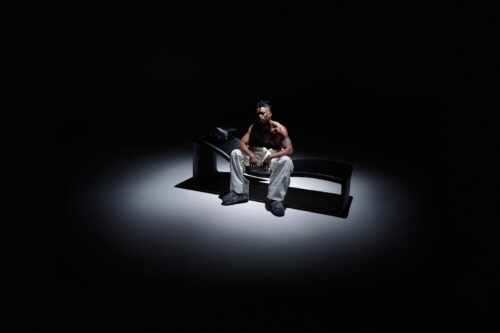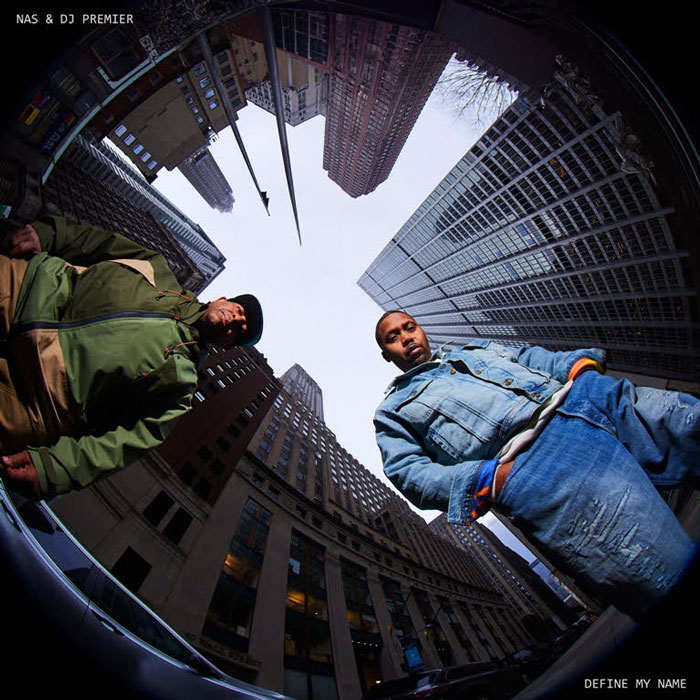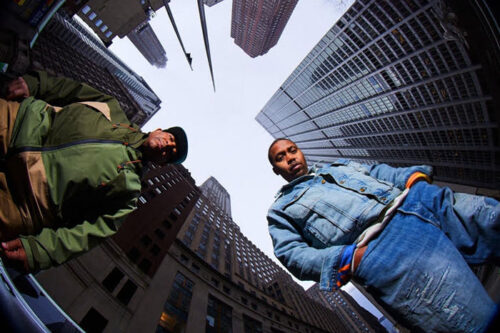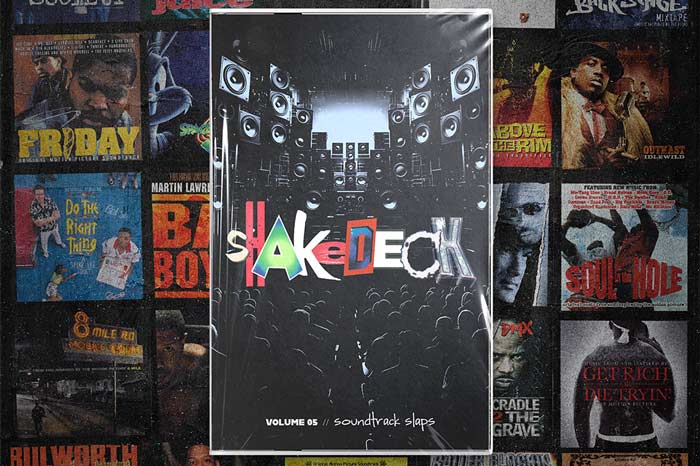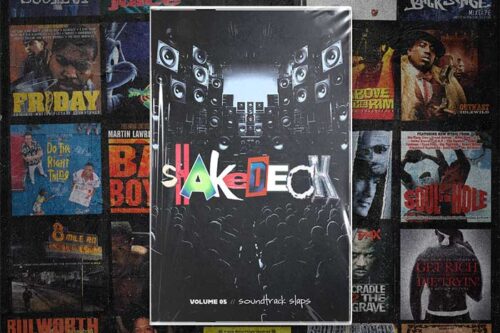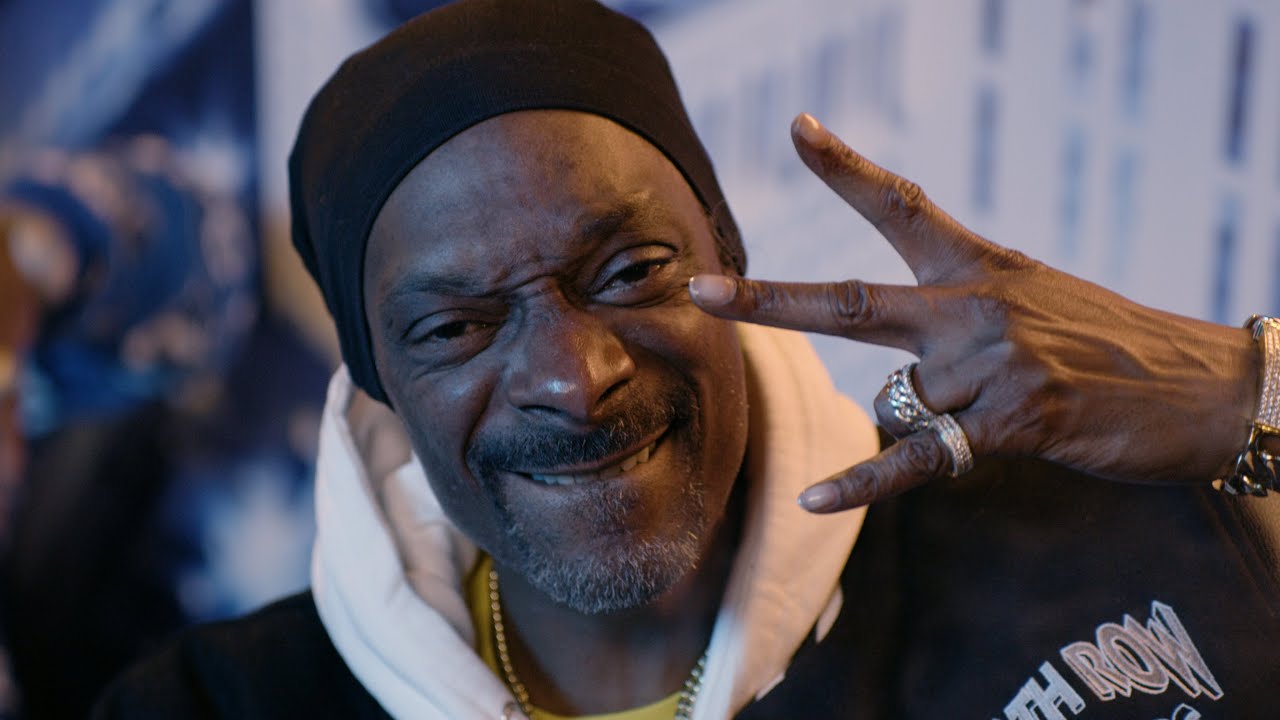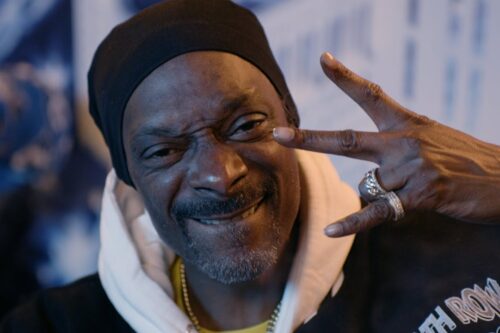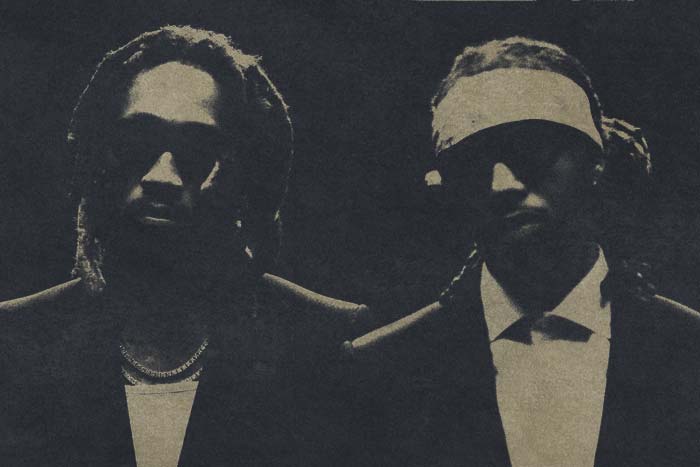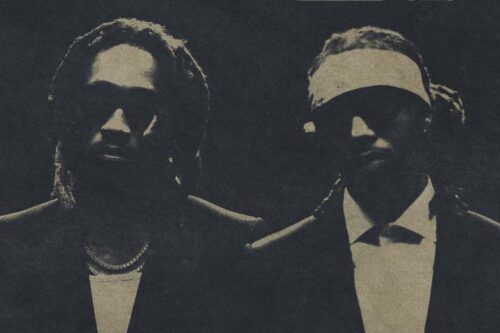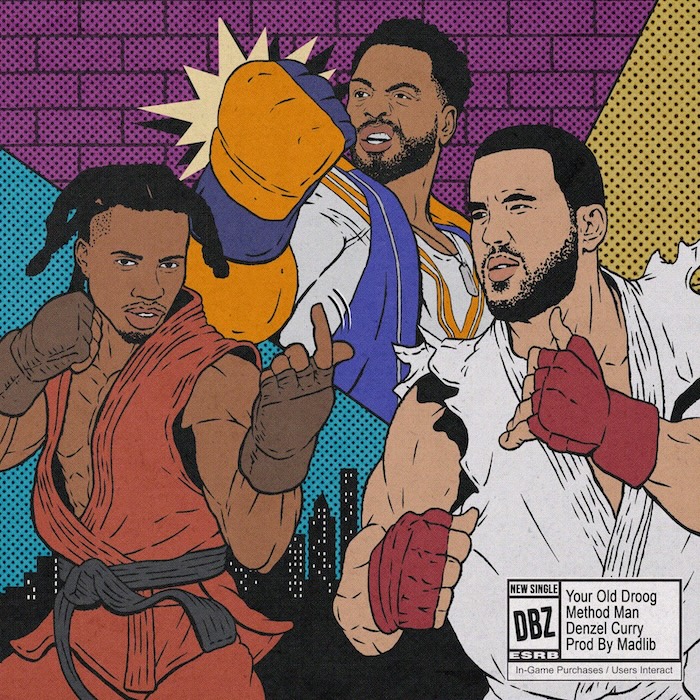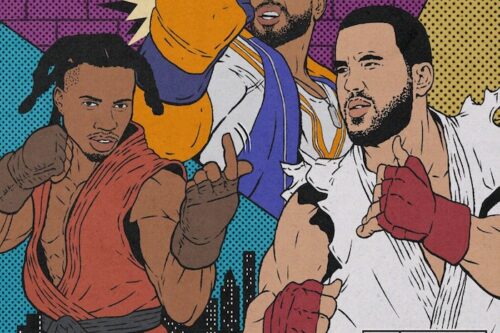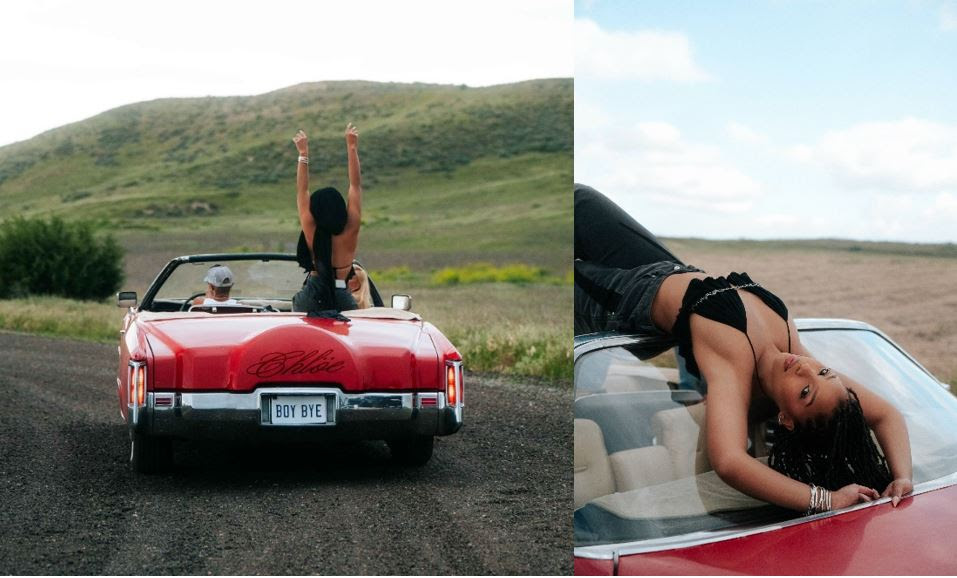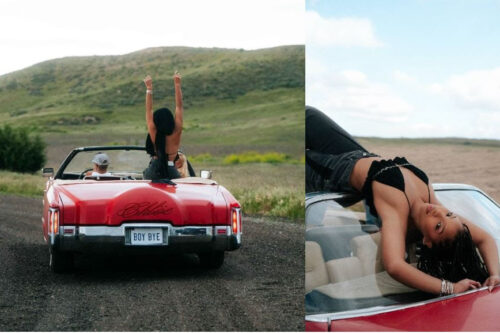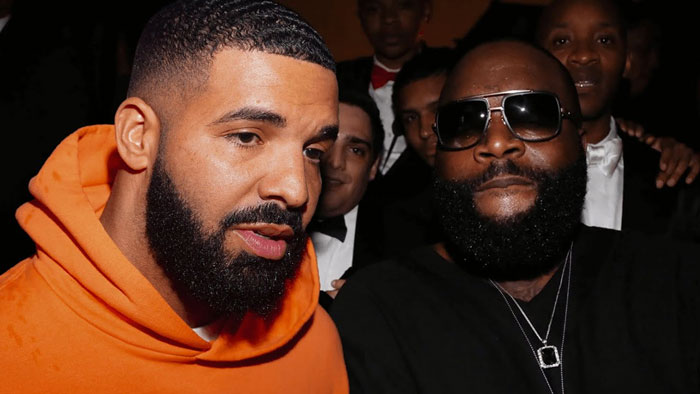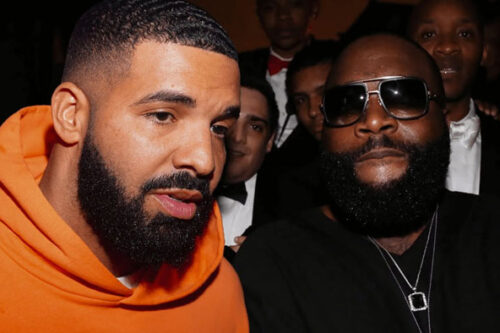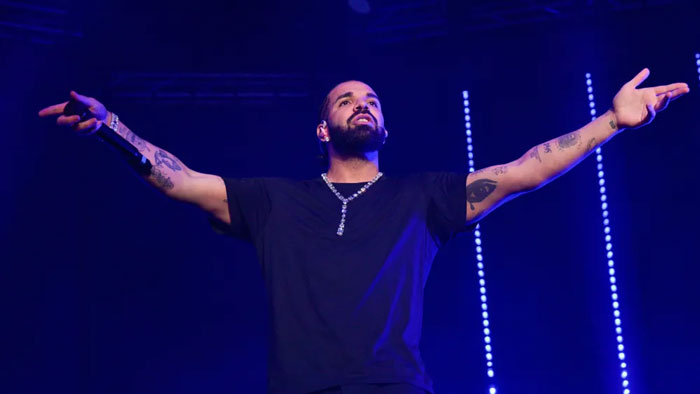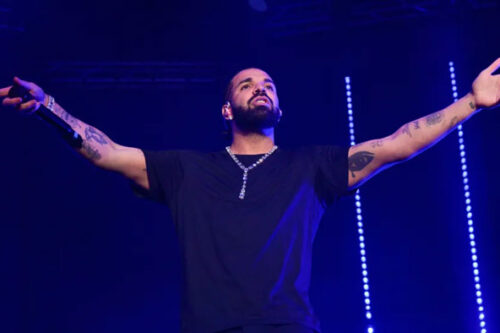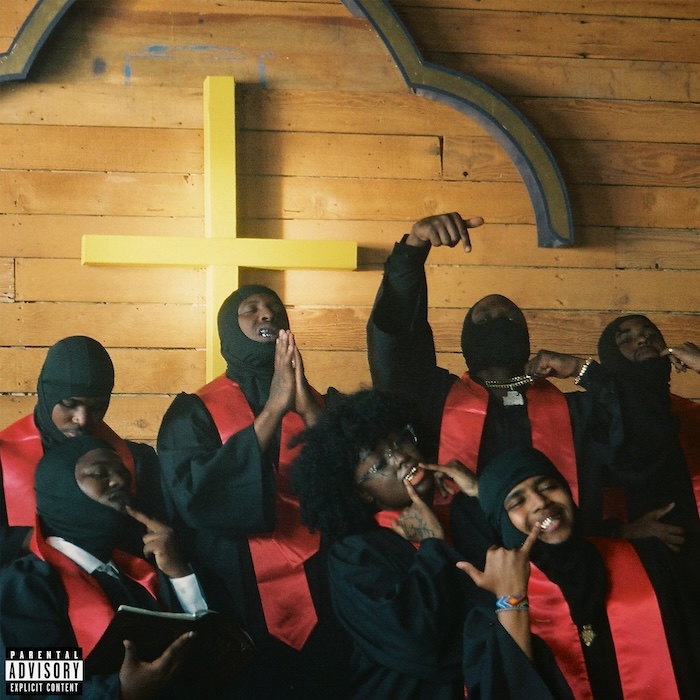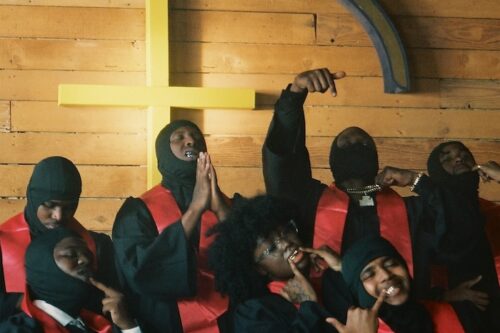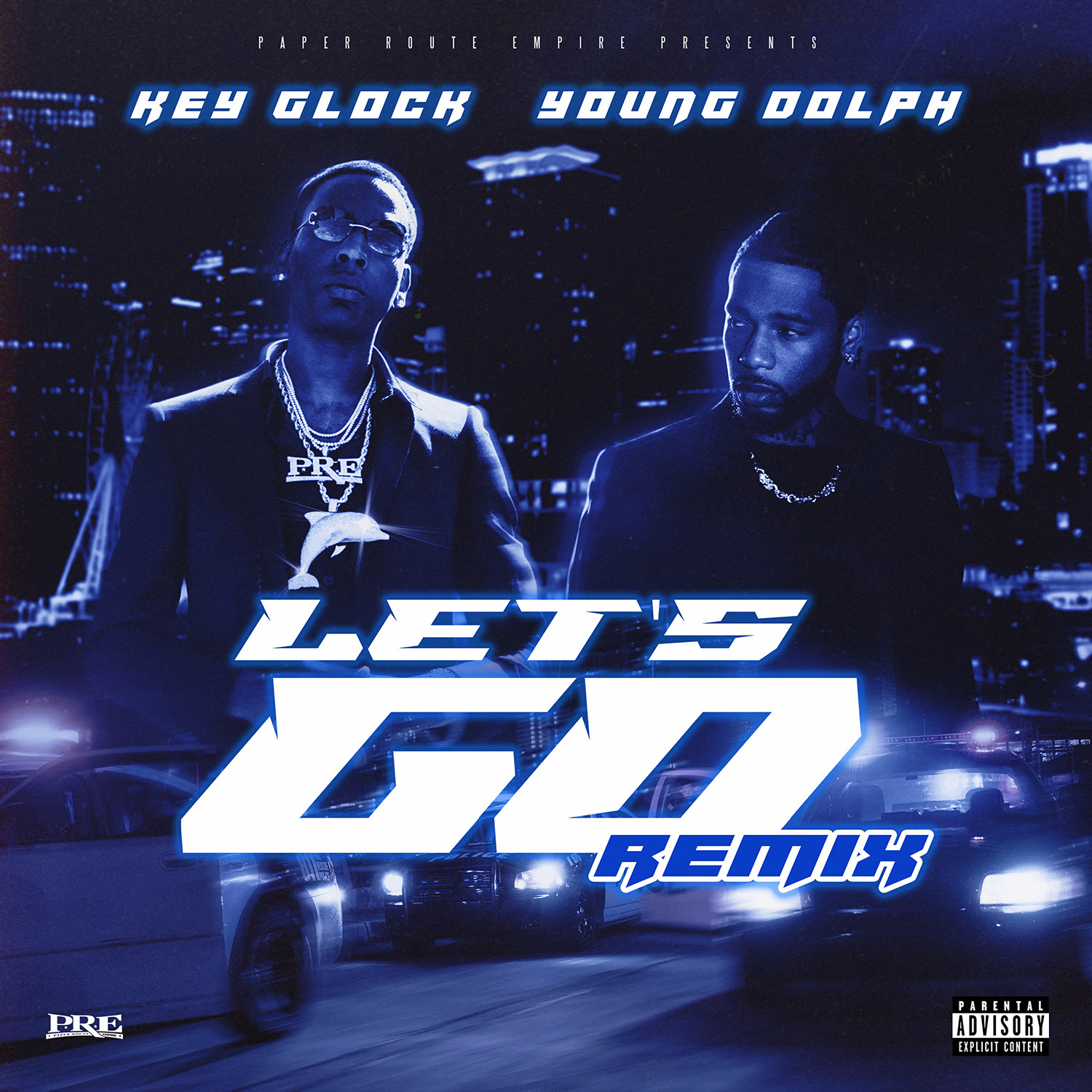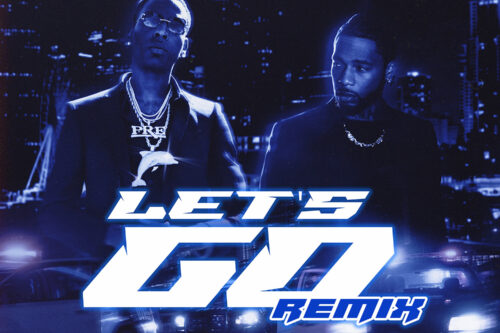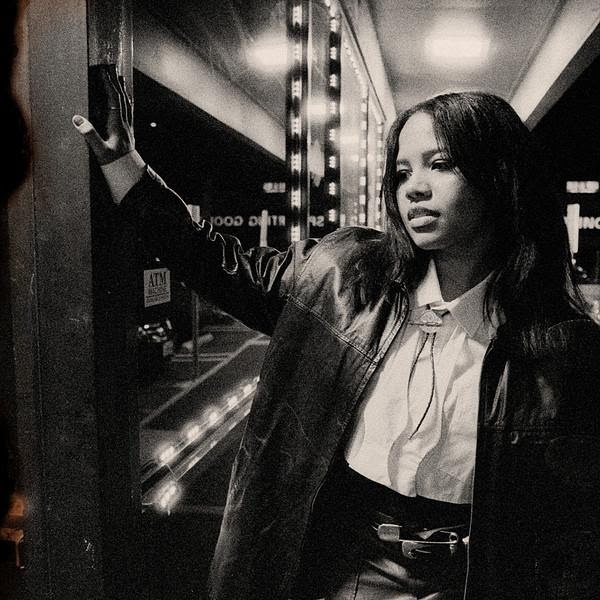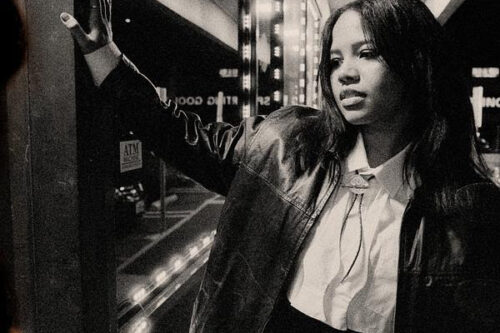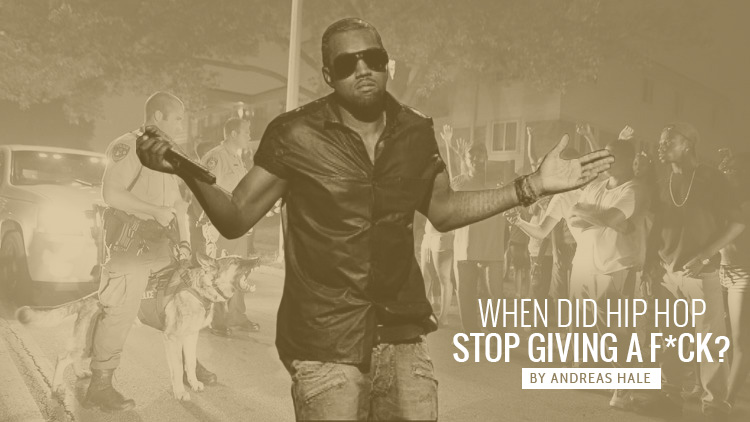
What day was it exactly when hip-hop stopped giving a fuck?
Before I climb onto my soapbox, I recognize that the opening sentence is stuffed with hyperbole. The fact is that there are pockets within hip-hop that do care about the social issues that plague our community. But in the grand scheme of things – and on its highest financial level – social issues aren’t on hip-hop’s overall agenda. So, for the purpose of making our culture pay attention, the exaggeration is a necessity.
Once upon a time, way before social media was a vehicle to communicate with anyone in the world and blogs allowed rappers to release music at will, hip-hop had a voice when it came to political and social issues. Public Enemy’s Chuck D famously coined rap music as “Black America’s CNN” because the music provided a window into the lives of the marginalized and often ignored black underclass. If that was the case back then, today’s rap music has become nothing more than a gossip tabloid that is more infatuated with Kanye and Kim’s relationship than it is with police brutality and the alarming genocide of African American men.
What I’m saying, for lack of a better term and in the most politically incorrect way possible, is that hip-hop has grown a massive vagina when it comes to confronting society ills. (Because, you know, having a vagina doesn’t actually make you a weak and passive individual, but I digress…)
Twenty years ago, you couldn’t kill one of our children in cold blood and not expect the community to come out in full force. Rodney King was beat down on camera and we were infused with so much vitriol when the four officers that were charged with assault with a deadly weapon and excessive force were acquitted of all charges. Why? Because what we had been rapping about for so many years prior had come to fruition. Whether you lived in Compton or Chicago or Carson City, rap music clued you into what was going on inside of our communities that the newspapers wouldn’t talk about.
But today is different. You can kill one of our children and rappers barely bat an eyelash. They’d rather tweet about their new song in soundcloud than voice their concern over Jordan Davis’ murderer being convicted of everything but killing the 17-year-old who played his music too loud. Our memories have become shorter, our concerns more financially motivated and rap music is no longer about being a voice for the voiceless. Instead, it is big business that concerns itself more with offending people and jeopardizing a financial base rather than standing for something aside from the mighty dollar. And while those concerns have some validity, ask yourself where we would be without those that put their careers on the line for what they believed in.
Do you really think that Muhammad Ali is called “The Greatest” only because of his boxing ability? If you do, than you are severely misinformed as to why Muhammad Ali is one of the most beloved sports figures of all time. His boxing prowess was indeed remarkable. However, Muhammad Ali stood for something and was willing to risk it all for the greater good of society. These days, people who have nothing are scared to risk the idea of having something and refuse to speak out against society ills in fear of offending the wrong people. Oh, how we have been neutered as a community.
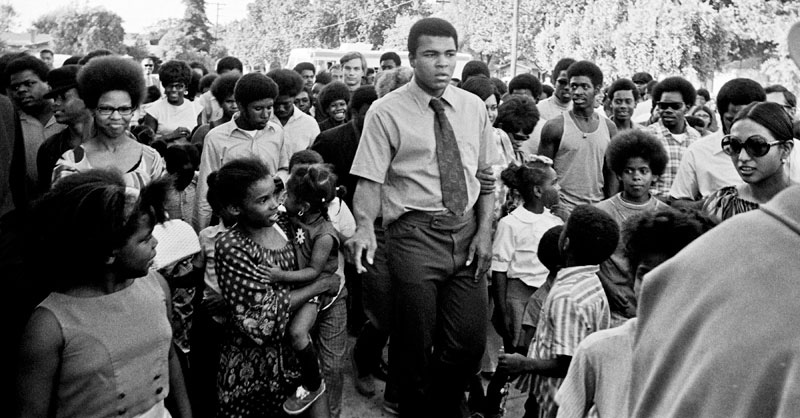
And if you are one of those individuals who are suggesting that we’ve become numb to the alarmingly high rate that unarmed African Americans are being gunned down by law enforcement (and, more importantly, people who have taken the law into their own hands), well allow me to point you to the nearest exit because I can guarantee you that the family and friends of Jordan Davis, Trayvon Martin, Sean Bell, Oscar Grant, Aiyana Stanley-Jones, Mike Brown, Eric Garner, Ezell Ford and the litany of others who have lost their relatives are feeling far from “numb.” I’d bet my bottom dollar that they feel the loss every single day of their lives. But here we are saying that we are “numb.” You can all miss me with that bullshit because you’ve become part of the problem rather than a fragment of the solution.
And that problem is indifference.
Let’s be clear, I’m not suggesting that all of hip-hop was once an African-medallion-wearing-black-power-fist of social consciousness. But there was a large enough segment of those inside of the community that chose to inject their rhymes with political and social dialog that resonated with our youth.
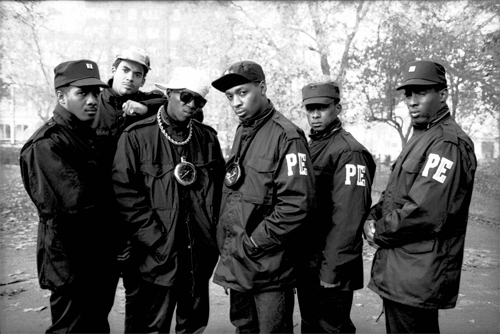
Speaking from experience, if it wasn’t for Public Enemy, KRS-One, N.W.A., Paris and X-Clan, I may not have been inspired to pick up a book and further educate myself on the Black Panther Party, Malcolm X and Marcus Garvey or learn about incidents such as Howard Beach and the Watts riots of 1965. Because they damn sure didn’t teach me who Huey P. Newton was in my classroom. Che Guevara’s name was never in any of my textbooks. Hell, all I learned from my teachers was that Black people were slaves; Martin Luther King Jr. was a great man because he wasn’t threatening and Africa was a hideously poor place that you didn’t want to associate yourself with.
But there was hip-hop to help alter that fraudulent portrayal. Considering that rap music was the only voice we had thanks to the unruly assassinations of Malcolm X and Martin Luther King as well as the wonderful COINTELPRO program, we made sure our voices were heard loud and clear. When N.W.A. said “Fuck The Police,” we forced people outside of our community to uncomfortably listen to our plight. So when the chickens came home to roost courtesy of the Los Angeles Riots on April 29, 1992, we were well informed and prepared.
Hip Hop had a say in the matter.
Moving into the late 90s and 2000s, artists such as dead prez, The Coup, Mos Def, Talib Kweli, Common, Immortal Technique, Killer Mike, David Banner and others kept that spirit alive through their music. If it wasn’t Immortal Technique aggressively rhyming about the pitfalls of imperialism independently, it was Lupe Fiasco putting us on to game commercially. M-1 and stic.man told us that it was bigger than hip hop while Talib Kweli and Mos Def explained to us that “beef isn’t what Jay said to Nas/Beef is when workin’ niggas can’t find jobs.”
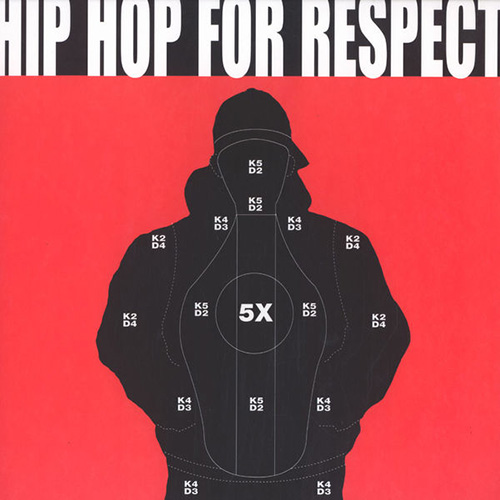
I recently stumbled across the Hip Hop For Respect project from Rawkus records that was released in 2000 and assembled 41 emcees to represent the 41 shots that were fired at Amadou Diallo by NYPD. Mos Def, Talib Kweli, Kool G Rap, Common, Company Flow, Pharoahe Monch, Wise Intelligent, Ras Kass and others joined forces to rhyme about police brutality. In 2014, our voice has just about vanished. Hip Hop will occasionally tweet or speak on an issue when it becomes too large to ignore (i.e. Trayvon Martin) but the follow up is minimal to nothing. And therein lies my concern with the current situation transpiring in Ferguson, Missouri.
We are currently seeing the hip hop community slowly speaking out after the death of an unarmed 18-year-old male at the hands of law enforcement became too large to ignore thanks to the civil unrest coming out of the largely African American community. A few tweets and mentions after a performance are nice and everything, but then what? Do we go to sleep happy that we shouted out Mike Brown and held up the peace sign at the end of a show? Can we be truly satisfied with a couple of tweets about how bad it is in Missouri right now while those within the community are hit by rubber bullets and plowed with tear gas?
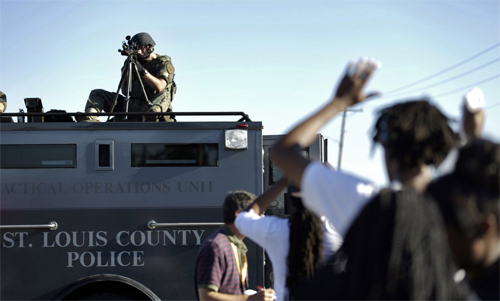
Photo: Jeff Roberson
The bigger hip-hop has become, the less it has to say. How convenient.
The question is whether the hip-hop community sees this one all the way through or will it just another hot topic that we’ll conveniently forget in a few weeks? The reality is that it is just as important to pay attention whenever the trial for Mike Brown’s shooter begins as it is protesting today. Otherwise, the job is incomplete.
As a community, we have become notorious for starting something and not finishing it. When President Obama was running for office, it was the only thing we were talking about. It was our goal to be responsible for America’s first Black president and we urged the youth of this country to blindly hit the polls. It didn’t matter whether we were educated on the political process because we tend to forget that the president is not responsible for situations such as Florida’s “Stand Your Ground” law and police brutality in an individual city. We sort of figured that having a Black president would cure our problems. So when we proved our influence and Obama became president, we reclined in our beach chairs like the solution had arrived. Little did we know, the issues pertaining to the marginalized and often-ignored black underclass would still not be addressed. Curiously, we are seeing even more instances of police brutality against minorities under Obama’s watch.
What is interesting today is that we were so upset about Rodney King being beaten up by LAPD on camera twenty years ago. But he lived through that and was able to tell his story. Today, young unarmed African Americans are being shot in cold blood and we aren’t nearly as pissed off as we were two decades earlier. Instead, the numerous deaths are met with a shrug of indifference, as we tend to forget that the next Mike Brown just might be someone we know.
Don’t get it misconstrued; the blame doesn’t fall squarely on hip-hop’s shoulders. The lack of action and follow through is something that we are plagued with as a society. Activism is lacking in all forms of media on a mainstream level. However, for a culture that was created as anti-establishment and an alternative to what was being force-fed to the masses, it’s disheartening to see such a lack of mobilization.
Not to single him out, but rather than see Lil Wayne on ESPN promoting his album, wouldn’t it be nice if he took the opportunity to talk about what is going on in Ferguson, MO? When Skip Bayless fruitlessly inquires about Lil Wayne’s next album, the Young Money rapper turns to the camera and says…
“I’m here to promote Tha Carter V but at this time I’d like for everyone to pay attention to what is happening in Ferguson, MO in the aftermath of yet another black male being gunned down at the hands of law enforcement. The portrayal of the protests by the media and the heavy military response reminds me of what happened in my hometown of New Orleans during Hurricane Katrina. We must come together as a community if we truly want changes to be made…”
Or something to that effect.
Let’s not exploit the tragedies and diminish their lives with nonsensical punchlines in your throwaway rhymes. Instead, let’s be the voice for the voiceless and spread the message to government officials that we aren’t going to continue to sit by idle while they perform a systematic genocide on black men and women.
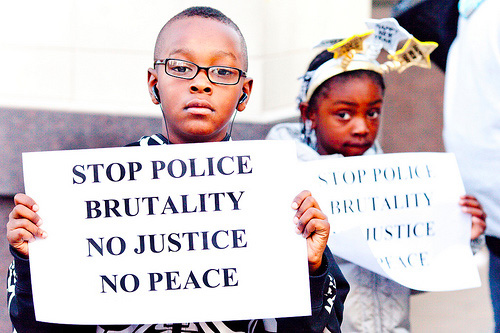
During hip-hop’s 40-year journey from passing music fad to big business it has managed to forget where it came from. It has become less about being anti-establishment and more about empowering the institutions that wouldn’t allow us to join their highbrow fraternities a few decades ago. This isn’t to say that you shouldn’t treat your art like a business and not every rapper needs to care about gentrification. But remember how powerful of a tool hip-hop is when it comes to spreading imperative messages to the masses. If we can peddle Honey Nut Cheerios, Reeboks and Bud Light, then we should be able to use the numerous forms of media to take a stance against social issues that continue to plague our community.
How many more Eric Garners need to be choked to death in front of our eyes before the hip-hop community takes a stance? We were quick to say “fuck Cristal” when we felt that the champagne didn’t value our business but aren’t as quick to say “fuck police brutality” when they continuously harm our children? And let’s not forget the rash of violent episodes that have taken place in Chicago. It’s pretty counterproductive to merrily consume a Chief Keef song that basically summarizes and supports the destruction of his hometown. There’s a problem there that we can no longer ignore for the good of “entertainment.”
Knowledge is power and is the single most important tool necessary to make changes in this country. The more we use our platforms to inform, the more likely that people will gravitate toward those issues and potentially change legislation.
“I’m not saying I’m gonna change the world, but I guarantee that I will spark the brain that will change the world.” © Tupac Shakur
As much as we take away from Tupac Shakur’s life, perhaps we should also absorb the activism that bled through his very being. Do you think Tupac would have stood by and allowed this to happen without making sure his voice was heard? The voice is an instrument for influence so let’s use it for something that can change our lives for the better. Promoting your album can wait.
But I’m just a critic, who the hell am I?
+ My Frustrating 20+ Year Love/Hate Relationship With Nasir Jones
+ The Case For J. Cole’s “Born Sinner” As The Best Album of 2013
+ The Undeniably Frustrating Career of Wale


